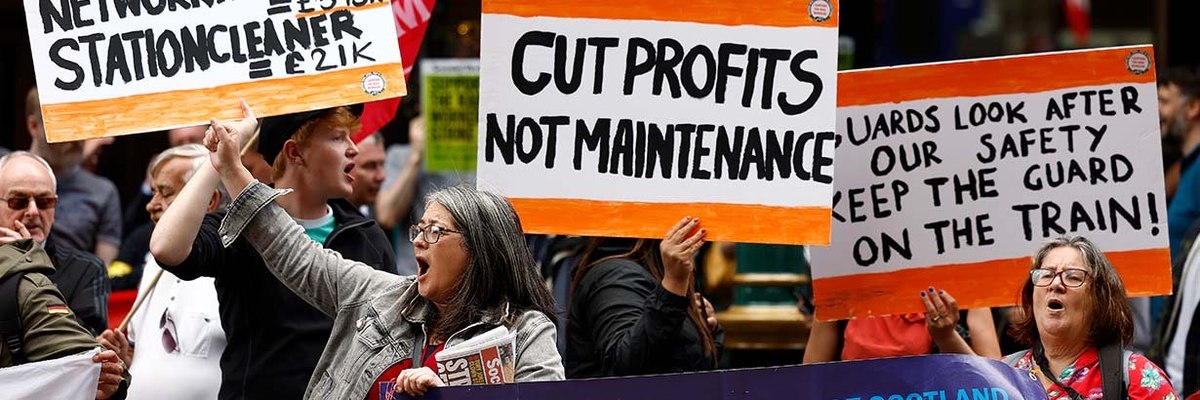They do, however, support rail workers refusing overtime over the festive period
There is set to be disruption to rail services this winter, with the Rail, Maritime and Transport union (RMT) announcing 40,000 of its members will be taking industrial action. The plan has two components: full strikes on 13,14,16 and 17 December and 3,4,6 and 7 January, as well as staff refusing to work overtime in the intervening period from 18 December to 2 January.
Britons tend to oppose the strike element of the plan, with 47% opposed and 41% supporting. These results are not far removed from prior YouGov polling on rail strikes in the summer: a June poll found Britons opposed a rail transport workers strike taking place later that week by 45% to 37%, with a poll the week following the strike finding the opposition figure remained fixed while support now stood at 41%. An October poll on a forthcoming strike by train drivers and rail transport workers taking place that week found backing higher still, although Britons were still divided by 45% in support to 42% opposed.
Britons do, however, tend to support the overtime refusal aspect of the RMT’s industrial action, by 50% to 37%, even though this will affect the festive period itself.
Unsurprisingly, most Labour voters support both elements of the industrial action, with 67% backing the strikes and 72% the refused overtime. By contrast, most Conservative voters are against the plans, opposing the strikes by 73% to 19% and the overtime refusals by 61% to 30%.
There is also a generational divide in attitudes. When it comes to the strikes, the youngest Britons (18-24 year olds) are the only age group in clear support, by 51% to 32%. The 25-49 and 50-64 year old age groups are divided, while the over-65s are strongly opposed, by 65% to 27%.
When it comes to the overtime refusal, however, the three younger age groups all tend to be supportive (53-57%). It is only the oldest Britons who are opposed, by a margin of 57% to 34%.
Photo: Getty





